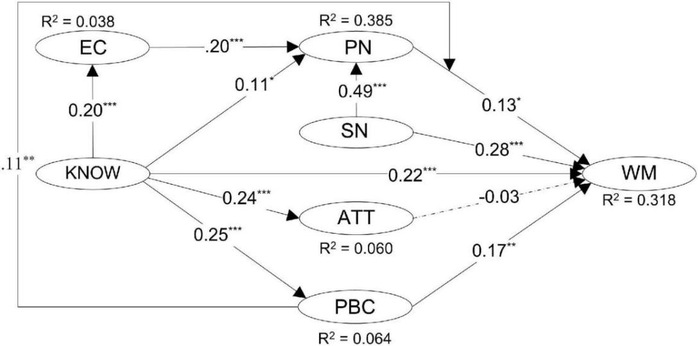
Date: 2022-01-30 Visitcount: 80
Understanding Waste Management Behavior Among University Students in China: Environmental Knowledge, Personal Norms, and the Theory of Planned Behavior
Lingqiong Wu, Lingqiong Wu, Yan Zhu, Junqing Zhai(CA)
Front Psychol
DOI: 10.3389/fpsyg.2021.771723
https://doi.org/10.3389/fpsyg.2021.771723
Abstract
Previous studies have confirmed that individual waste management behavior is influenced by both rational-based and altruistic-oriented beliefs and attitudes. Scholars incorporated personal norms in Ajzen’s theory of planned behavior and confirmed its usefulness in predicting waste management behavior. However, limited attention has been paid to the interactions between the variables in the model. Scholars also commented that the cognitive dimension was largely neglected in the current socio-psychological framework of waste management behavior. This study intends to address this issue by incorporating environmental concern and environmental knowledge in the model and examining the psychological paths linking these variables to waste management behavior within the expanded model of planned behavior. Based on a cross-sectional survey among 434 university students in China, the results showed that subjective norms, perceived behavioral control, personal norms, and environmental knowledge were essential predictors of waste management behavior, whereas the direct effect of attitude was not statistically significant. Environmental concern and subjective norms could influence waste management behavior through personal norms. Environmental knowledge could influence waste management behavior indirectly through environmental concern, personal norms, and perceived behavioral control. Moreover, perceived behavioral control served as a mediator between the relationship of personal norms and waste management behavior.
Keywords
Theory of planned behavior; value-belief-norm theory; environmental knowledge; pro-environmental behavior; recycling


